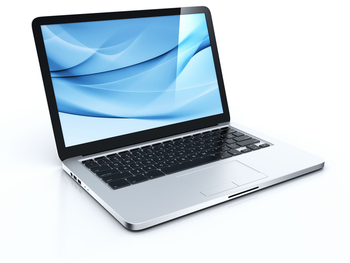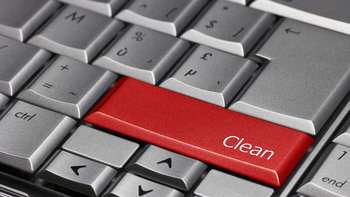
The average laptop lifespan is around three to five years. Laptops are some of the most personal items that people own and use.
More...
It's essential to know how long a laptop should last before buying one.
You can increase your laptop's lifespan by staying on top of its software requirements and doing recommended updates.
Laptops are more expensive than ever before, so it's best to ensure they last as long as possible.
Likewise, laptops are becoming more and more popular today, and it is no surprise why they're portable, convenient, and powerful.
But with all these benefits come some flaws when it comes to their lifespans.
The average laptop lifespan varies depending on how often the device is used.
A few ways to prolong your laptop's lifespan include investing in a cooling pad.
In other aspects, if you're looking for a reliable laptop with long battery life and durability, it's essential to research the options available before deciding.
No matter what you do, though, the average lifetime of a laptop will be relatively short.
Maximize the Average Laptop Lifespan
The lifespan of a laptop is mainly dependent on the amount of wear and tear it goes through and how often a person repairs or upgrades the device.
Laptops can last up to three or five years before they need repairing with parts that have experienced excessive use.
For example, there are cracked screens, sticky keyboards, outdated operating systems, broken hinges, and power cables that won't plugin because of frayed wires.
If you want to maximize your laptop's life, then eventually, you'll have to replace these items, or else its longevity will decrease.
How to Extend the Lifespan of Your Laptop?
Protecting your laptop with cool conditions will help extend its lifespan and maintain battery life.
Other ways to extend your laptop's life are by shutting down programs and keeping the computer in sleep mode when not in use.
Additionally, disconnecting an external hard drive while still plugged into the power supply also helps to improve laptop longevity.
In like manner, ensure your laptop batteries and battery charger work smoothly, so you can use your laptop for long periods without charging.
Don't place too much weight on your notebook computer or push down hard on any key because this could cause damage.
Equally important, make sure that air can flow inside the case without being blocked by debris - for example, dust.
Closing its lid will also reduce unnecessary heat build-up, leading to system failure after prolonged usage.
Why Do You Use Your Laptop?
Computers are an integral part of our lives. Laptops can be used in many different ways, whether for school or work.
Not to mention, they are devices that can store, retrieve and process data using digital information.
Likewise, they can perform complex mathematical calculations or other tasks requiring fast computing power and memory storage capacity.
They've been used for everything from playing games to watching movies, listening to music, and they're an essential tool in the modern workforce.
The mobility of laptops is also one factor that makes them popular with business travelers who need quick access to work documents on the go.
Some people might consider using a laptop as an alternative to carrying around their desktop computer and its cords and wires.
For some laptop users, the laptop is a backup if their desktop computer goes down or gets stolen.
Do You Take Good Care of Your Laptop?
Your device will keep you connected and always be ready to help. Therefore, taking good care of your device is always worth the effort.
At the same time, it can be tempting to let our laptops get dirty and dusty without cleaning them regularly, but doing this will cause damage in the long run!
You'll want to ensure you have a regular and efficient laptop maintenance regimen.
For example, cleaning your keyboard, using compressed air to clean the vents on your laptop's case when not in use, and closing all of its covers when not in use will help extend the average laptop lifespan.

Tips to Increase Your Laptop’s Lifespan | |
|---|---|
1 | Always keep your laptop in its case when it's not being used |
2 | Keep the screen clean by using compressed air or rubbing alcohol on a soft cloth. |
3 | Clean out any dust build-up with canned air. |
4 | Always keep your keyboard clean |
5 | Don't put hard drives in sleeves that are too tight. |
6 | Don't leave sticky notes on your screen or touchscreen device for long periods, as these can cause scratches over time. |
7 | Avoid placing laptops near any source of liquid-like sinks or toilets because water droplets might trickle inside through small openings like vents. |
How Can I Increase My Laptop's Lifespan?
One way is by using the power-saving mode on your computer, which will lower the processor speed and use less battery life, but it won't affect performance significantly.
Another method would be to keep your operating system updated with the latest patches and updates to have fewer bugs or security risks running through your machine.
Buy an external hard drive for storing anything like pictures or movies that don't need to be used because they're large files.
Further, it would help if you also considered upgrading any components that are getting old, like RAM and hard drives, and making sure everything else on your computer has been updated so that no bugs have slipped through undetected.
Ensure it doesn't overheat. Keep the device cool.
An excellent way to help prevent this is by purchasing a cooling pad for your computer, which will also protect against overheating if something goes wrong with the fan or power supply and shuts down altogether.
When Should I Get a New Laptop?
A laptop is an important device. It helps you work efficiently and lets you stay connected with friends and family members far away.
But what if the time has come for you to recycle your older laptop? What should you do when the time comes for a new one?
If you have been experiencing frequent crashes and other system errors, this might indicate that your computer needs replacing soon after all else has failed.
It's time to upgrade when your laptop is older than 5 years and has been through the wringer.
Besides, it's always good to get a new one when you notice any significant changes in speed or functionality.
If you're looking for something that will last a long time, consider getting one with a high-quality build in mind.
These machines tend to be expensive, but they are worth every penny.
When buying a computer, be sure to consider the CPU and RAM.
The CPU is responsible for carrying out the program's instructions, while the RAM temporarily stores information so it can be processed.
How Much Do Laptops Cost?
A laptop is the most popular type of computer you can buy, but it's not cheap.
The cost of buying a personal computer varies depending on its features such as CPU speed, Random-Access Memory size, and hard drive space.
It is important to realize that laptops typically cost anywhere from $500 to over $2,000 depending on what features are available and how much power they have.
For instance, a high-end gaming or professional-grade computer will cost more money.
Ultimately, laptops are typically more expensive than desktop computers due to their size and the number of parts they contain.

In the Final Analysis
Laptops are essential tools for many people; they've become a must-have in today's world.
With a laptop, an internet connection, and a portable screen, it's easy to watch movies with friends at the park or work from anywhere you find yourself.
They come with many useful features, such as portability, compact design, and the ability to be used in various settings.
However, not all laptops are created equally. You can choose from multiple brands to find one that best fits your needs and budget.
Nevertheless, a few factors can affect how long your computer will last, including the model's specs, how much care it's given, and its age when you purchase it. The quality of the battery is also essential to keep in mind.
Be that as it may, update your operating system with the latest patches and security updates, which will help prevent malware attacks.
Similarly, install antivirus software to protect against viruses that can slow down or crash your computer.
Back up all data on an external hard drive to create a safety net if something happens to your laptop's hard drive.
Switch off applications you're not using and close programs running in the background.
Always turn off Wi-Fi when you're out of range or not in use, and never leave your laptop unattended with its power plug connected.
Once again, the average laptop lifespan is around five years, so it's vital to take care of your laptop to get the most out of it.
If you follow these simple steps, you'll be able to extend your laptop's lifespan and get more time out of it.